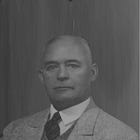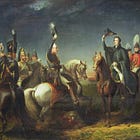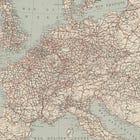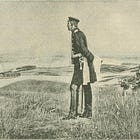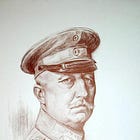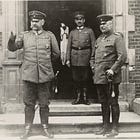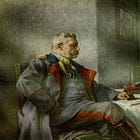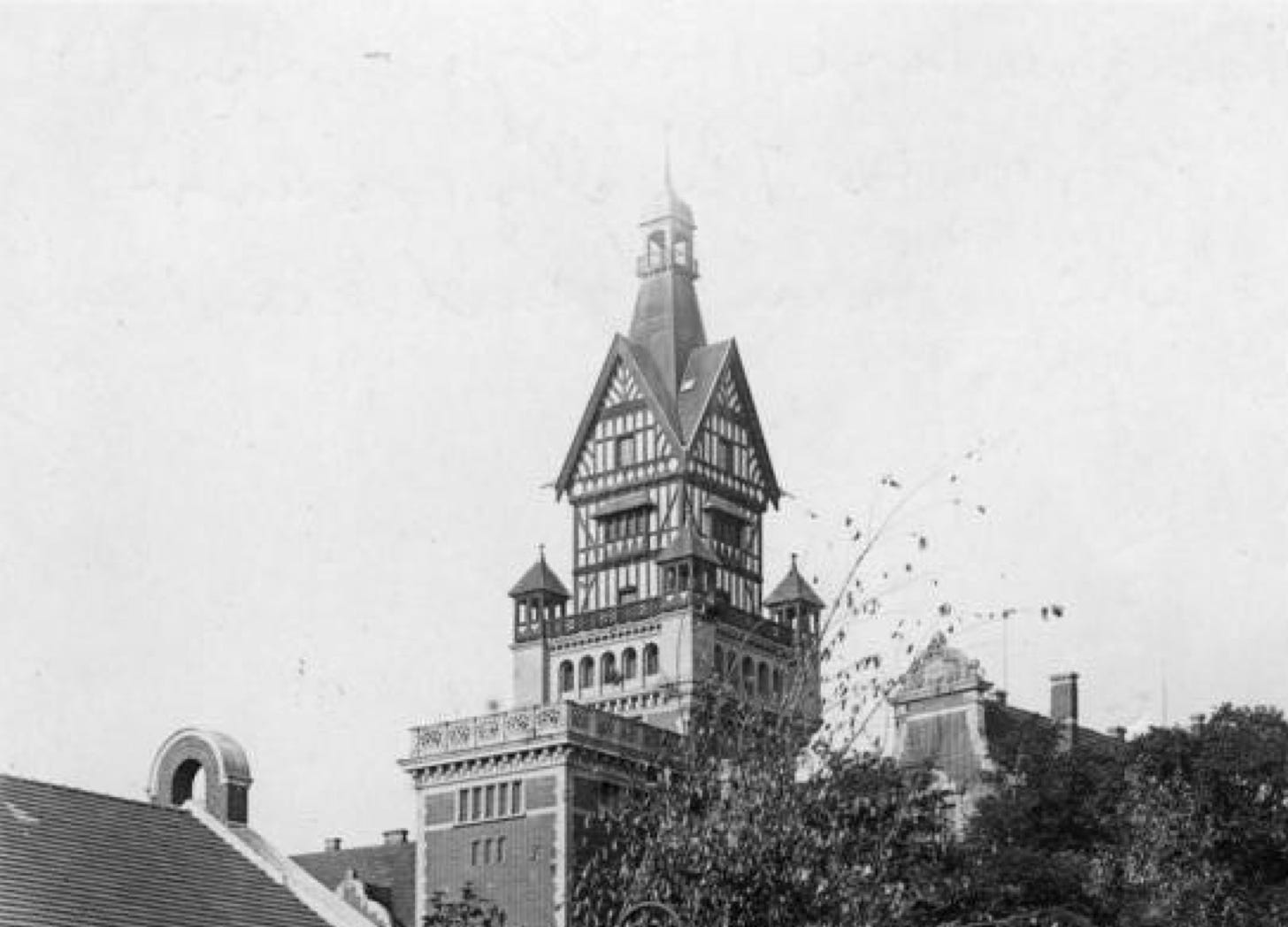
In the issue of that magazine dated April, 1939 Wissen und Wehr (Knowledge and Defense) published a substantial reply to the three articles articles that Georg Wetzell had written in response to the introduction that Wolfgang Foerster wrote for his book Heerführer des Weltkrieges (Military Commanders of the World War.) The sub-series continued with this post presents a translation of this article made by Frederick W. Morton in 1939 and revised, with reference to the German original, by Your Humble Servant.
For the first six posts in this sub-series, please see …
Wolfgang Foerster
The Picture of the Modern Military Commander:
A Word of Defense and Explanation
(Conclusion)
In concluding my article, I pointed out that the military commander of the future will occupy a different position within the framework of the government than he occupied during the World War. In that sense, I wrote:
While in the past the commander in chief alone made all decision dealing with military operations, he may nowadays receive orders to that effect and will be required to carry them out, even though he might object to them personally for strictly military reasons. Thus he becomes more or less dependent upon a superior will.Wetzell remarks in this connection:
I fail to see where military history and modern developments bear out any such conclusions, and I do not think that they are true; on the contrary, I regard them as dangerous. Let us not forget the War Council of Vienna, Benedek, MacMahon, the generals of Gambetta, the Dardanelles, and so forth.Again Wetzell misses completely the sense of my words. I do not speak of any interference with the command of the military operations on the part of the head of state, but of the decision as to where certain operations are or are not to be conducted.
I adhere merely to the principle, laid down by Clausewitz, that
war is not an independent matter, but a continuation of the policy with altered means. Therefore, the main outlines of all great plans are largely of a political nature, all the more so the more they affect the war and state in their entirety.According to this view, a purely military estimate of a great strategic entity and a purely military plan of the same are out of the question.
During the World War, the shortcomings of the government leaders in German unfortunately did not always permit the application of this principle. The military commander was solely responsible for the operations.
As an example, I cited the failure to occupy the Ukraine in time and pointed out that an occupation of that territory - for instance, as early as 1916 - would have materially strengthened the resistance of the Central Powers against the effect of the hunger blockade. My conclusion is confirmed by Der Weltkrieg (the German official history of the World War), where it is stated that the timely occupation of the economic sources of the ‘land of the black earth’ and Rumania would have been of tremendous help to the Four-Power Alliance.1
It (the occupation) promised to weaken the effects of the hunger blockade and perhaps gradually to neutralize it.Der Weltkrieg continues to explain the vital military objections to a campaign in the Ukraine which had resulted from the general situation at the end of 1915.2
Even a military commander of unusual daring hardly could have assumed the responsibility for such an undertaking. I do not mean to say that the government should have persisted in its instructions to the High Command to execute the campaign under those conditions and at that time. However, it is my opinion that, in view of the decisive importance of the early seizure of the economic sources in the Ukraine as a most effective weapon against the British blockade, far-reaching and early preparations should have been made, that is, as early as the spring or summer of 1915, to establish this objective as a definite guide for the conduct of the general operations.
The operations in the other theaters of war should have been made to conform to the attainment of this objective and subordinated to it. The military commander needed early instructions to this effect. The Der Weltkrieg concludes:
For it was absolutely essential to give the attacking forces ample time in which to prepare and execute the campaign. It devolved upon the government to create the necessary foundations by announcing its intentions to the High Command at an early moment. It is the duty of the head of state and supreme commander of the armed forces, who in totalitarian warfare is solely responsible for the entire conduct of the war (i.e. the concentration of all individual components) not only up to the outbreak of war, but in its course and end up to its conclusion as well, to determine what measures are required for the welfare of the nation, including measures pertaining to armed warfare, that is, to decide what operations are to be carried out or abandoned. To echo Clausewitz, the head of state must guard, however, against making demands opposed to the nature of war.
I am convinced that Wetzell is of the same opinion. Speaking on the whole, I have gained the impression that my description of the modern military commander after all closely resembles that which Wetzell has in mind. Moreover, the areas in which we differ strike me as disagreements about historical details, rather than the heart of the problem at hand.
This concludes The Picture of the Modern Military Commander: A Word of Defense and Explanation. For other parts of this debate, please see:
The four powers in question were Germany, Austria-Hungary, Bulgaria, and the Ottoman Empire.
Wolfgang Foerster held a high position in the German State Archive (Reichsarchiv), an agency that, among other things, produced Der Weltkrieg, the German official history of the World War.





